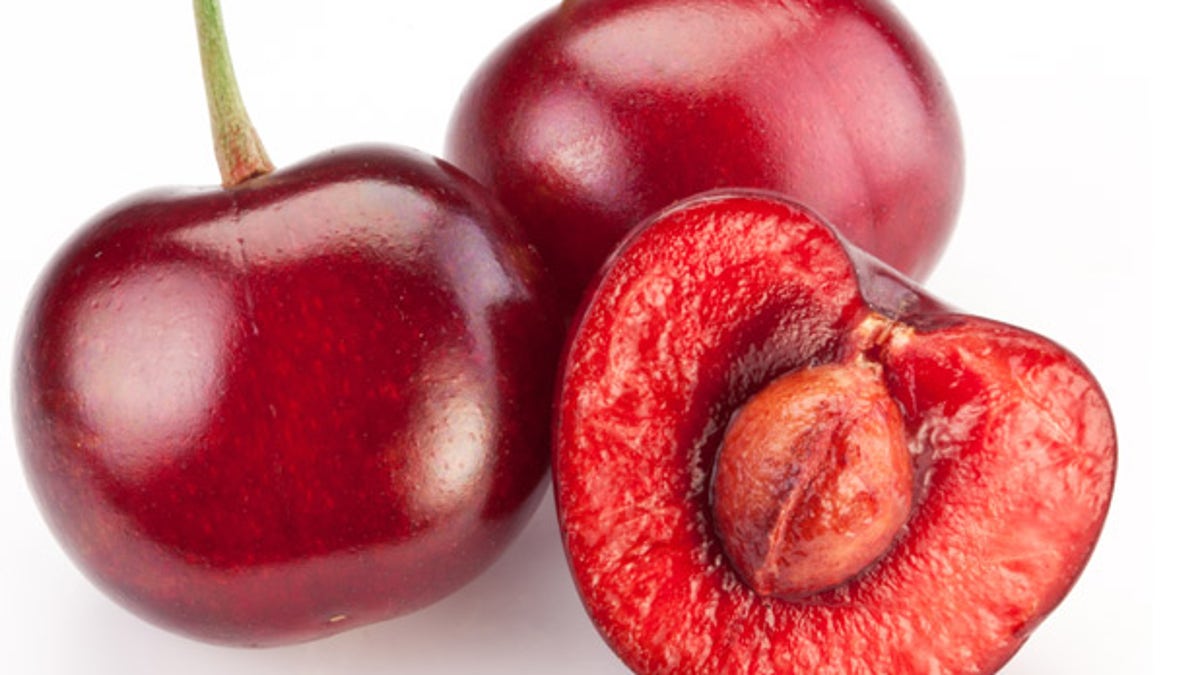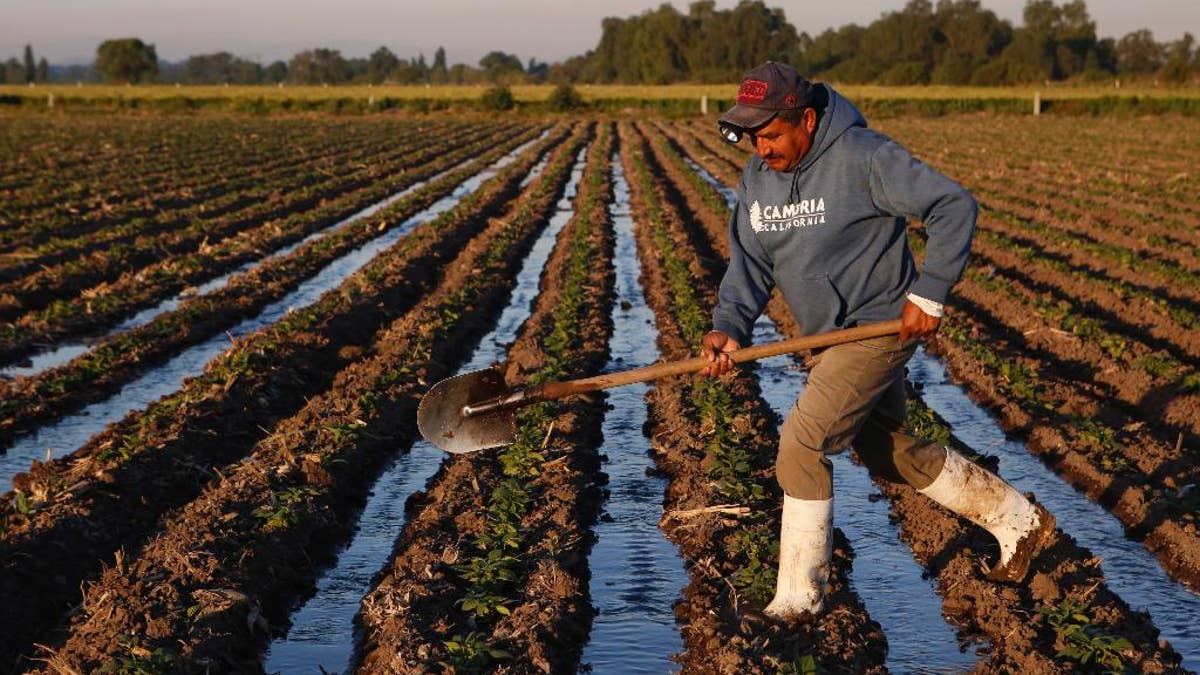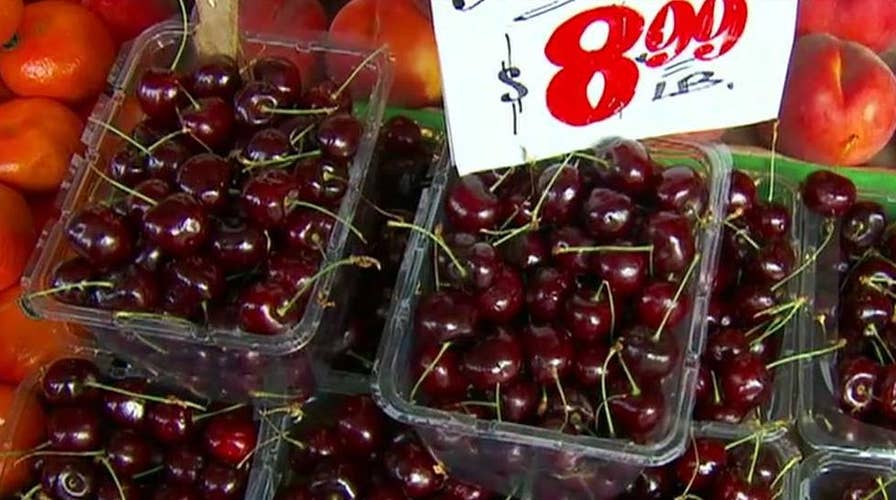China trade war hurts US cherry farmers
Some American cherry growers fear they may go out of business next year if nothing changes; Dan Springer reports from Duvall, Washington.
DUVALL, Wash. – When it comes to the impact of Chinese tariffs on U.S. farm goods, sweet cherries are the canary in the coal mine.
Unlike other commodities that can be stored, cherries are perishable. They’re picked, packed and sold right away. When China’s tariff went from 10 percent to 50 percent last July, right in the middle of the harvest, exports to China went from the most profitable to the pits.
Growers in Washington state, by far the largest producer of sweet cherries in the U.S., saw their bumper crop lose $86 million in value overnight.

Unlike other commodities that can be stored, cherries are perishable. They’re picked, packed and sold right away. When China’s tariff went from 10 percent to 50 percent last July, right in the middle of the harvest, exports to China went from the most profitable to the pits. (iStock)
“They’re upset, clearly,” said Mark Powers, president of the Northwest Horticultural Council. “I mean they are patriotic, they want to do the right thing, they understand that there are problems with our trade relationship with China.”
Washington Fruit and Produce Company in Yakima saw exports plunge 54 percent after the tariffs were raised. It’s made it extra painful because Chinese consumers pay a premium for American produce.
Growers fear they’ll lose their best foreign market to competitors in Turkey and South America and never get it back. They worry about where this trade war is heading.
“Because we are such a small share, we really don’t like to be used as the pawn,” said Frank Davis.
Soybeans grown in the Midwest are a much bigger player, accounting for 60 percent of the $20 billion of food exports to China. A Nebraska Farm Bureau report recently released said the retaliatory tariffs have cost state growers $1 billion. Farmworkers lost another $200 million in income.

Supporters of President Trump say farmers need to keep the big picture in mind.
“I think a lot of farmers are feeling the pain right now,” said Doug Erickson, a senator in the Washington state Legislature. “But I think a lot of them understand it’s important for America overall to have fair trade relationships.” (The Associated Press)
Supporters of President Trump say farmers need to keep the big picture in mind.
“I think a lot of farmers are feeling the pain right now,” said Doug Erickson, a senator in the Washington state Legislature. “But I think a lot of them understand it’s important for America overall to have fair trade relationships.”
Agriculture officials say that day is coming.
“Certainly, by next fall, we will be back to a more robust, more even fair tariff-free trading relationship,” said Bill Northey, USDA Undersecretary.
Farmers hurt by the tariff war are getting some relief from a one-time $12 billion aid package. But a growing refrain from a national campaign called ‘Tariffs Hurt the Heartland’ is they want trade—not aid.


